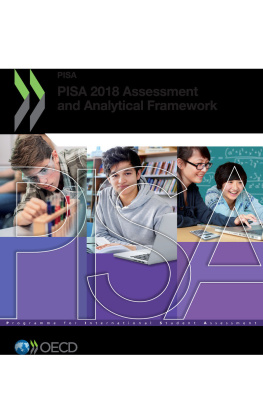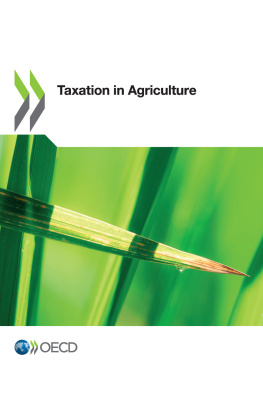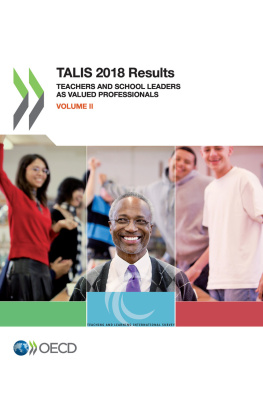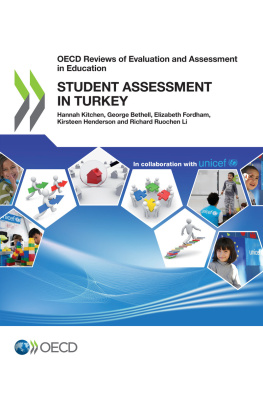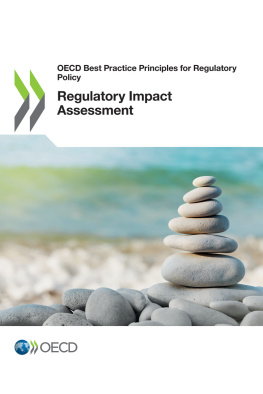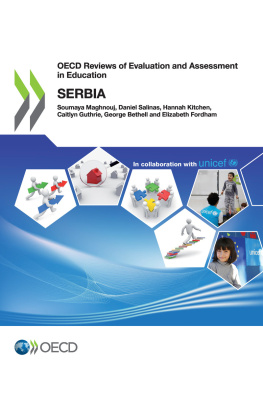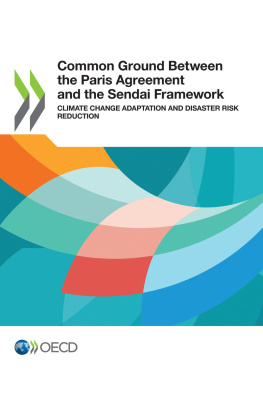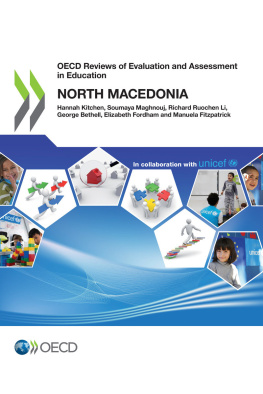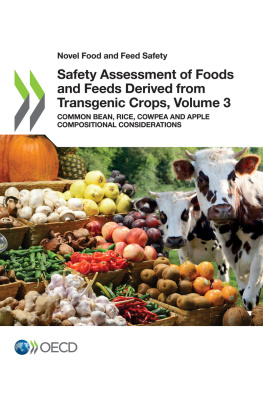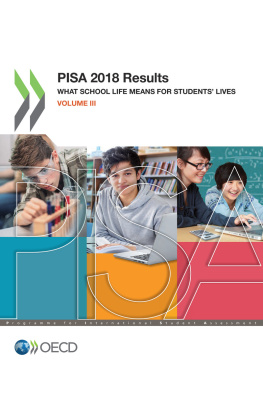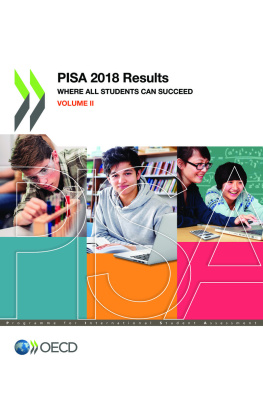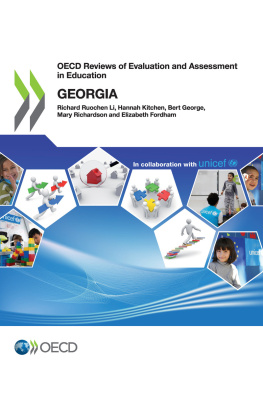OECD - PISA 2018 Assessment and Analytical Framework
Here you can read online OECD - PISA 2018 Assessment and Analytical Framework full text of the book (entire story) in english for free. Download pdf and epub, get meaning, cover and reviews about this ebook. year: 2019, publisher: OECD Publishing, genre: Home and family. Description of the work, (preface) as well as reviews are available. Best literature library LitArk.com created for fans of good reading and offers a wide selection of genres:
Romance novel
Science fiction
Adventure
Detective
Science
History
Home and family
Prose
Art
Politics
Computer
Non-fiction
Religion
Business
Children
Humor
Choose a favorite category and find really read worthwhile books. Enjoy immersion in the world of imagination, feel the emotions of the characters or learn something new for yourself, make an fascinating discovery.
- Book:PISA 2018 Assessment and Analytical Framework
- Author:
- Publisher:OECD Publishing
- Genre:
- Year:2019
- Rating:3 / 5
- Favourites:Add to favourites
- Your mark:
- 60
- 1
- 2
- 3
- 4
- 5
PISA 2018 Assessment and Analytical Framework: summary, description and annotation
We offer to read an annotation, description, summary or preface (depends on what the author of the book "PISA 2018 Assessment and Analytical Framework" wrote himself). If you haven't found the necessary information about the book — write in the comments, we will try to find it.
OECD: author's other books
Who wrote PISA 2018 Assessment and Analytical Framework? Find out the surname, the name of the author of the book and a list of all author's works by series.
PISA 2018 Assessment and Analytical Framework — read online for free the complete book (whole text) full work
Below is the text of the book, divided by pages. System saving the place of the last page read, allows you to conveniently read the book "PISA 2018 Assessment and Analytical Framework" online for free, without having to search again every time where you left off. Put a bookmark, and you can go to the page where you finished reading at any time.
Font size:
Interval:
Bookmark:
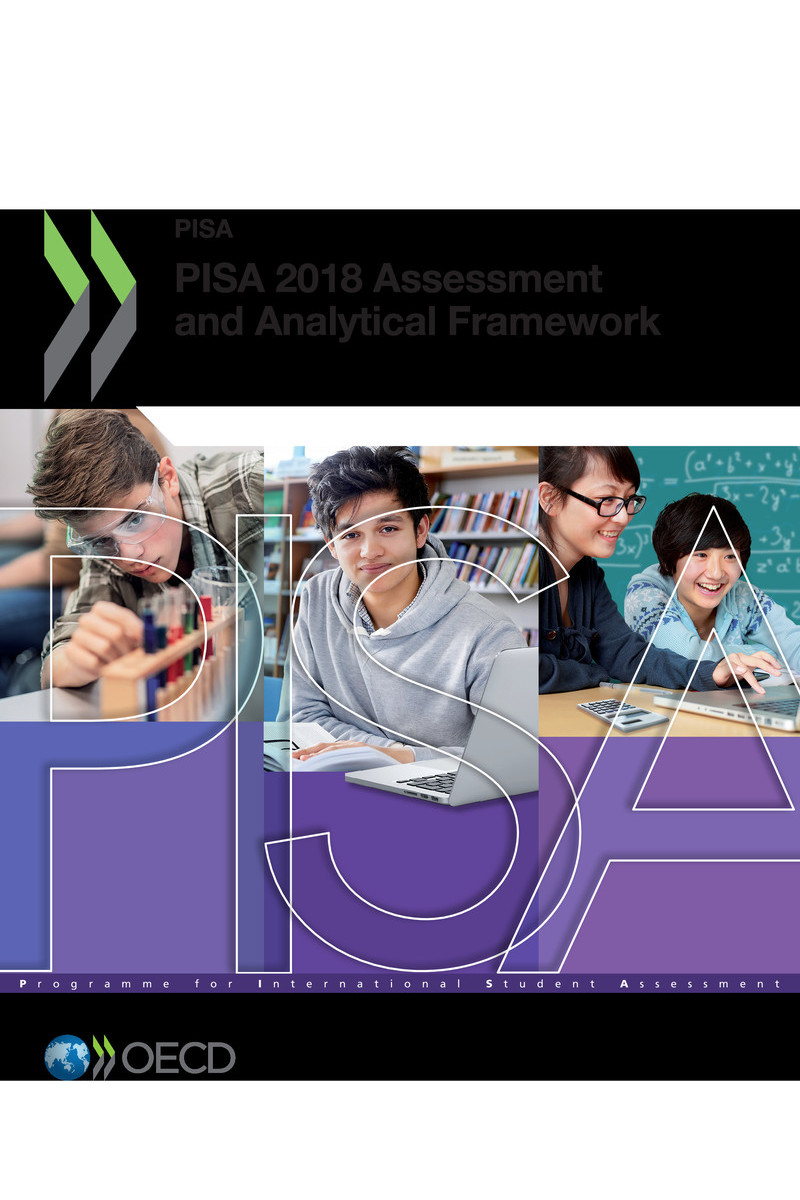
OECD (2019), PISA 2018 Assessment and Analytical Framework , PISA, OECD Publishing, Paris, https://doi.org/10.1787/b25efab8-en .
The OECD Programme for International Student Assessment (PISA) assesses the extent to which 15 year old students near the end of their compulsory education have acquired the knowledge and skills that are essential for full participation in modern societies. The assessment does not just ascertain whether students can reproduce knowledge; it also examines how well students can extrapolate from what they have learned and can apply that knowledge in unfamiliar settings, both in and outside of school. This approach reflects the fact that modern economies reward individuals not for what they know, but for what they can do with what they know.
The triennial assessment, launched in 1997, focuses on the core school subjects of reading, mathematics and science. Students proficiency in an innovative domain is also assessed; in 2018, this domain was global competence. This publication presents the theory underlying the PISA 2018 assessment the seventh since the programmes inception. It includes frameworks for assessing the three core subjects of reading, mathematics and science, the framework for the third assessment of students financial literacy, and the framework for assessing the innovative domain, global competence. These chapters outline the content knowledge that students need to acquire in each domain, the processes that students need to be able to perform, and the contexts in which this knowledge and these skills are applied. The publication also discusses how each domain is assessed. It concludes with the frameworks for the various questionnaires distributed to students, school principals, parents and teachers, and the framework for the new well-being questionnaire distributed to students.
In PISA 2018, reading was the major domain of assessment, as it was in 2000 and 2009. The three assessment subscales used in 2000 and 2009 were renamed locating information, understanding and evaluating and reflecting for 2018. Two new subscales were also used to describe students literacy with single-source and multiple-source texts. The reading scale was also extended by adding Level 1c, which better describes the proficiency of the lowest-performing students.
PISA is the product of a collaborative effort between OECD and the governments of both OECD countries and its partner countries/economies. The assessments are developed co-operatively, agreed by participating countries/economies, and implemented by national organisations. The co-operation of students, teachers and principals in participating schools has been crucial to the success of PISA during all stages of development and implementation.
The reading framework was developed by the reading expert group with the guidance of John de Jong and Peter Foltz from Pearson. The reading expert group was chaired by Jean-Franois Rouet (University of Poitiers, France). Other experts who contributed to the reading framework are Paul van den Broek (Universiteit Leiden, the Netherlands), Kevin Chung (University of Hong Kong, China), Sascha Schroeder (Max Planck Institute for Human Development, Berlin, Germany), Sari Sulkunen (University of Jyvskyl, Finland; also served as the liaison to the PISA global competence expert group), and Dominique Lafontaine (Universit de Lige, Belgium; also served as the liaison to the PISA questionnaire expert group).
The global competence framework was developed by Mario Piacentini of the OECD Secretariat with Martyn Barrett (University of Surrey, Guildford, UK), Veronica Boix Mansilla (Harvard University and Project Zero, Cambridge, USA), Darla Deardorff (Duke University, Durham, USA) and Hye Won Lee (Korea Institute for Curriculum and Evaluation, Jincheon, Korea), with additional help from Rose Bolognini and Natalie Foster (OECD Secretariat), Natasha Robinson (University of Oxford, UK) and Mattia Baiutti (Fondazione Intercultura, Colle di Val dElsa, Italy and the University of Udine, Italy). This framework built on earlier work from experts who led the first part of the development of the global competence assessment: Darla Deardorff (Duke University, Durham, USA), David Kerr (University of Reading, UK and YoungCitizens, London, UK), Peter Franklin (HTWG Konstanz University of Applied Sciences, Germany), Sarah Howie (University of Pretoria, South Africa), Wing On Lee (Open University of Hong Kong, China), Jasmine B Y Sim (National Institute of Education, Singapore), and Sari Sulkunen (University of Jyvskyl, Finland).
The framework for the PISA 2018 questionnaires was developed by the questionnaire expert group with the guidance of John de Jong and Christine Rozunick from Pearson. The questionnaire expert group was chaired by Fons van de Vijver (Tilburg University, the Netherlands; the North-West University, Potchefstroom, South Africa; and the University of Queensland, Brisbane, Australia). Other experts who contributed to the development of the questionnaire framework are Dominique Lafontaine (Universit de Lige, Belgium), Sarah Howie (University of Pretoria, South Africa), Andrew Elliot (University of Rochester, USA), Therese Hopfenbeck (University of Oxford, UK) and David Kaplan (University of Wisconsin-Madison, USA).
The framework for the well-being questionnaire was developed by Jonas Bertling (ETS). All other frameworks were based on versions developed for previous PISA cycles.
Pearson facilitated the development of the reading and questionnaire frameworks. The Educational Testing Service (ETS) was responsible for managing and overseeing this survey, developing the instruments, scaling, analysis, and developing the electronic platform. Other partners or subcontractors involved with ETS include the Department of Experimental and Theoretical Pedagogy at the Universit de Lige (aSPe) in Belgium and the Educational Measurement and Research Centre (EMACS) of the University of Luxembourg in Luxembourg. Westat assumed responsibility for survey operations and sampling with the subcontractor, the Australian Council for Educational Research (ACER). cApStAn Linguistic Quality Control assumed responsibility for ensuring the linguistic equivalence of all language versions.
Font size:
Interval:
Bookmark:
Similar books «PISA 2018 Assessment and Analytical Framework»
Look at similar books to PISA 2018 Assessment and Analytical Framework. We have selected literature similar in name and meaning in the hope of providing readers with more options to find new, interesting, not yet read works.
Discussion, reviews of the book PISA 2018 Assessment and Analytical Framework and just readers' own opinions. Leave your comments, write what you think about the work, its meaning or the main characters. Specify what exactly you liked and what you didn't like, and why you think so.

